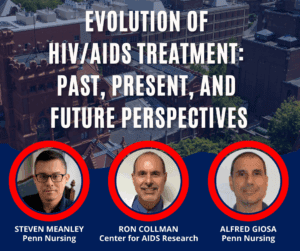Looking for meaningful projects at Penn? Eidos LGBTQ+ Health Initiative connects students with real-world experts, organizations, and projects making a difference.
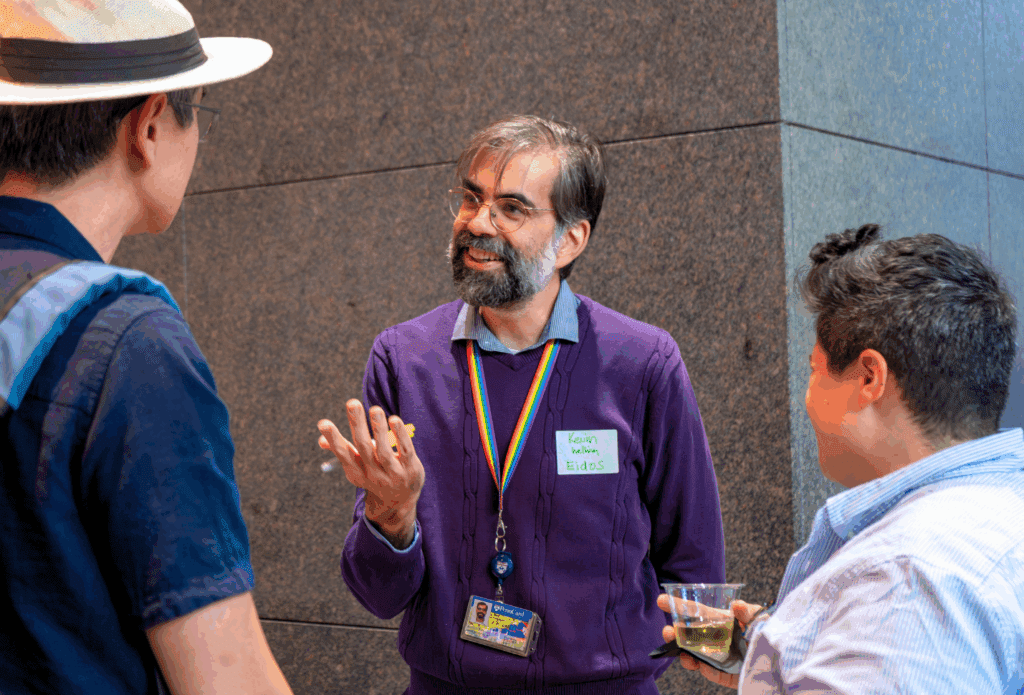
One of the most common questions I get asked around campus is, “How can I help?” Whether it’s faculty, staff, or students, the Penn community is teeming with driven, innovation-minded people passionate about making the world a better place. But for students in particular, things like classes, work schedules, and extracurriculars make it hard to convert that will to help into a way to help.
As the Director of Engagement at Eidos, that’s where I come in. By drawing on the network I’ve built in the world of LGBTQ+ health—non-profits, start-ups, researchers, and community leaders—I can sometimes act as a kind of matchmaker. I connect Penn students eager to make an impact with organizations and innovators looking for fresh perspectives, new energy, and real-world problem-solving.
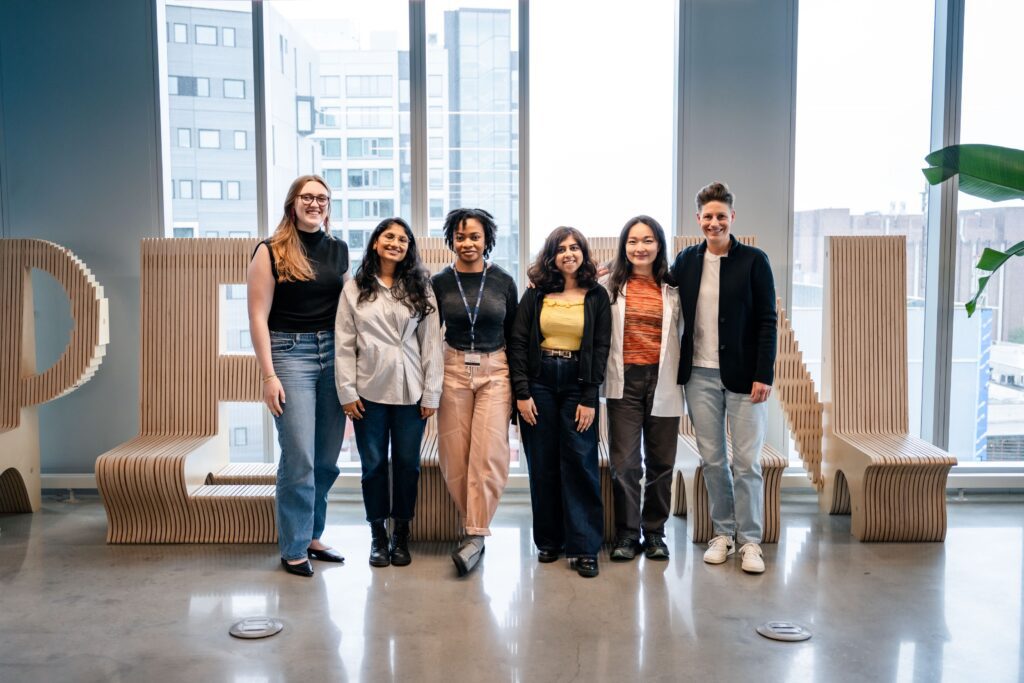
These “matches” take many forms. Just like no two students are alike, no two organizations are either. At Eidos, I hear from startups with a staff of two people, nonprofits powered entirely by volunteers, and healthcare providers on a personal mission to help their patients. No matter who they are, or where they are in their journey to improve LGBTQ+ health, Eidos wants to help. Sometimes that means there are opportunities for Penn students to step in, connect, and contribute in meaningful ways.
So how do we work with students to ensure an impact? Here are just a few stories from our portfolio of projects.
Advising on “Gender-Neutral” Fashion
In 2023, Eidos connected with Ashlie Grilz, a brand strategist working with Peau de Loup (PDL), a gender-neutral clothing line. PDL was searching for new ways to present their clothing without relying on “men’s” and “women’s” categories, while still helping buyers understand how the clothing would fit.
Our Associate Director of Innovative Projects, Julia Votto, knew that this would be the perfect challenge for students in Penn’s Integrated Product Design program. Four students taking the class, IPD 5520 Problem Framing, took the opportunity to work with Ashlie and PDL for their semester-long project.
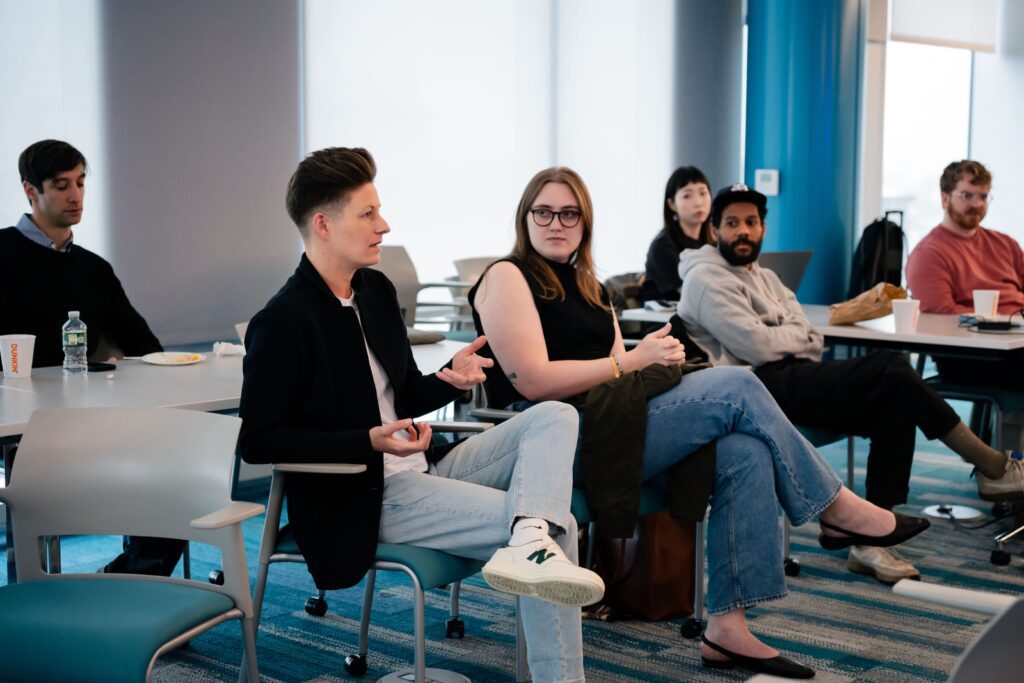
The student team collaborated with Ashlie to come up with new ways to present the PDL clothing line to consumers. Their final report contained branding recommendations and website edits that differentiated clothes by fit and size rather than gender. In the end, the students gained hands-on experience working on a real-world business problem in their area of interest and Ashlie received fresh input on an important design challenge.
Legal Advice for a Fledgling Startup
Sometimes the right match can be surprisingly straightforward. In 2022, I met Aydian Dowling, an entrepreneur and founder of the social media app Trace. Aydian had created Trace to be a positive place for trans and nonbinary people to track their transition, share moments of gender euphoria, and connect with others on the same journey. Aydian had the vision, the drive, and seed funding to launch Trace, but had questions about data security, how to implement best practices, and legal requirements for keeping his users safe.
Around the same time that I heard from Aydian, I was connected with the Health Law and Policy Project (HeLPP) at Carey Law School. HeLPP provides opportunities for legal students to work on real projects related to health law and policy.
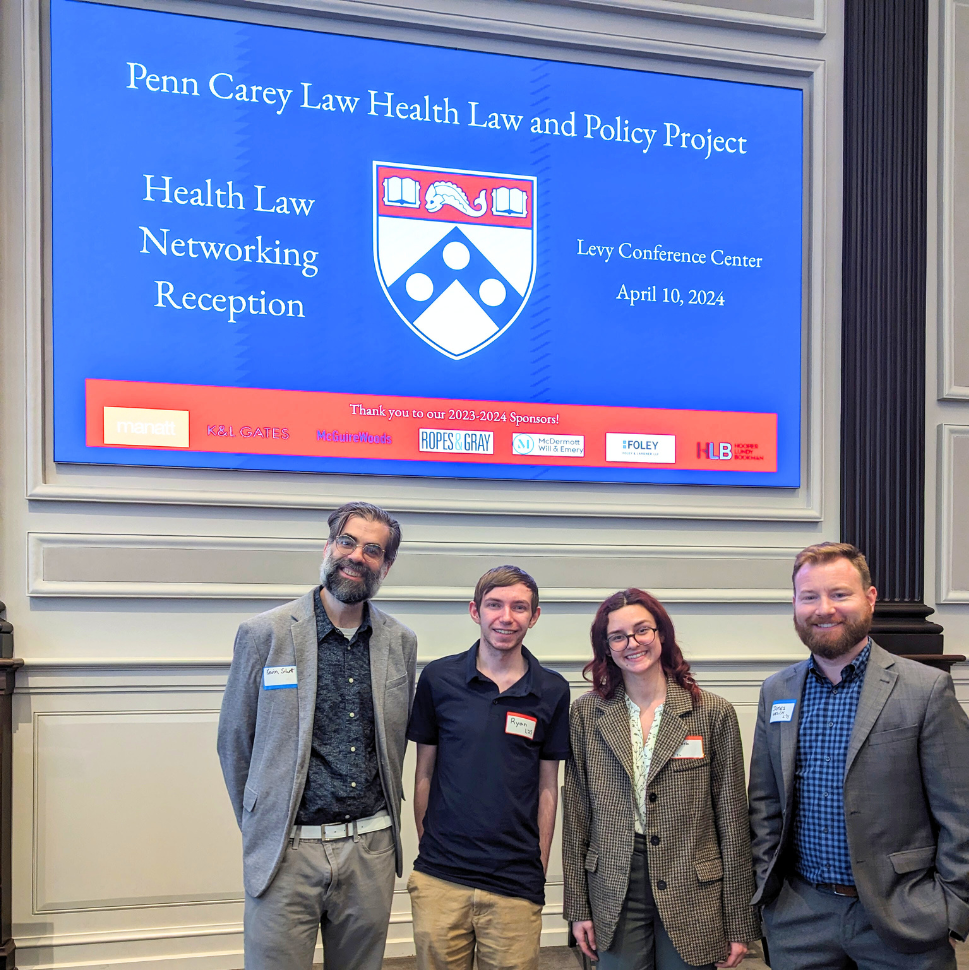
Students at HeLPP were eager to help Trace. In consultation with a supervising lawyer, they authored a memo outlining best practices and policy for the safe collection of user data. Following their recommendations, we connected Trace with a cybersecurity firm and provided Aydian with an updated user agreement with the app’s users, ensuring the app remained a safe and affirming space.
Finding Experts in the Field
Connecting students with real-word issues doesn’t always have to happen through classes and coursework. I’ve also been able to do some matchmaking for student clubs, connecting students with the best voices for the conversations they want to have.
Last year, I met with students from Penn’s oSTEM chapter, a student-run club for LGBT students studying STEM fields. They were planning an event to discuss the history and future of HIV care and needed help finding expert speakers. They had already secured one powerful speaker, a nurse with frontline experience in New York City hospitals in 1980s and 90s during the HIV outbreak. But they needed help finding panelists working in the field right now who could take the conversation into the present and look to the future.
Through my network, I was able to secure two additional speakers for the event. First, Dr. Ron Collman, the Director of Penn’s Center for AIDS Research. He spoke about his experiences during the early epidemic, as well as the current state of HIV and AIDS research. Second, our Eidos-affiliated faculty member Dr. Steven Meanley spoke about a current public health campaign they worked on in Philadelphia for people living with undetectable HIV viral loads.
Working together, we were able to connect students, faculty, and staff from across Penn schools and centers for an intergenerational discussion focused on real-world health needs.
What’s Next?
The most exciting part of my role at Eidos is never knowing who will walk through the door next. Each new conversation, whether it’s a student looking for a meaningful project or an innovator testing out an idea, opens up the possibility of a new match. Sometimes I can make a connection, and other times I just offer a friendly ear to talk through ideas.
Eidos sits at the intersection of Penn and the wider world. For innovators and organizations, Penn offers fresh ideas, a wealth of knowledge, and a testing ground to refine projects with community-engaged feedback. For students, that means access to real-world projects, mentors, and opportunities to shape the future of LGBTQ+ health.
In that way, matchmaking is about more than simply connecting people. It’s about building a mutually beneficial ecosystem where students, experts, and organizations all grow and thrive. And if you’re wondering what might be possible, my answer is this: I’m always excited to see where a conversation can take us!
Contact me at kschott@nursing.upenn.edu
